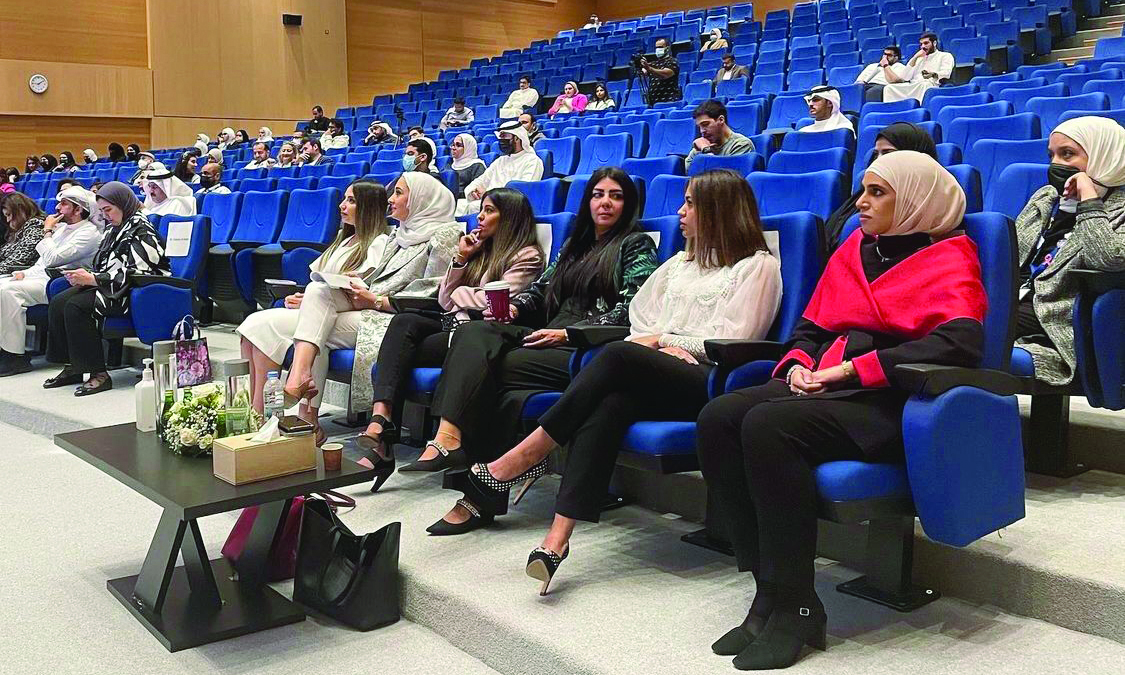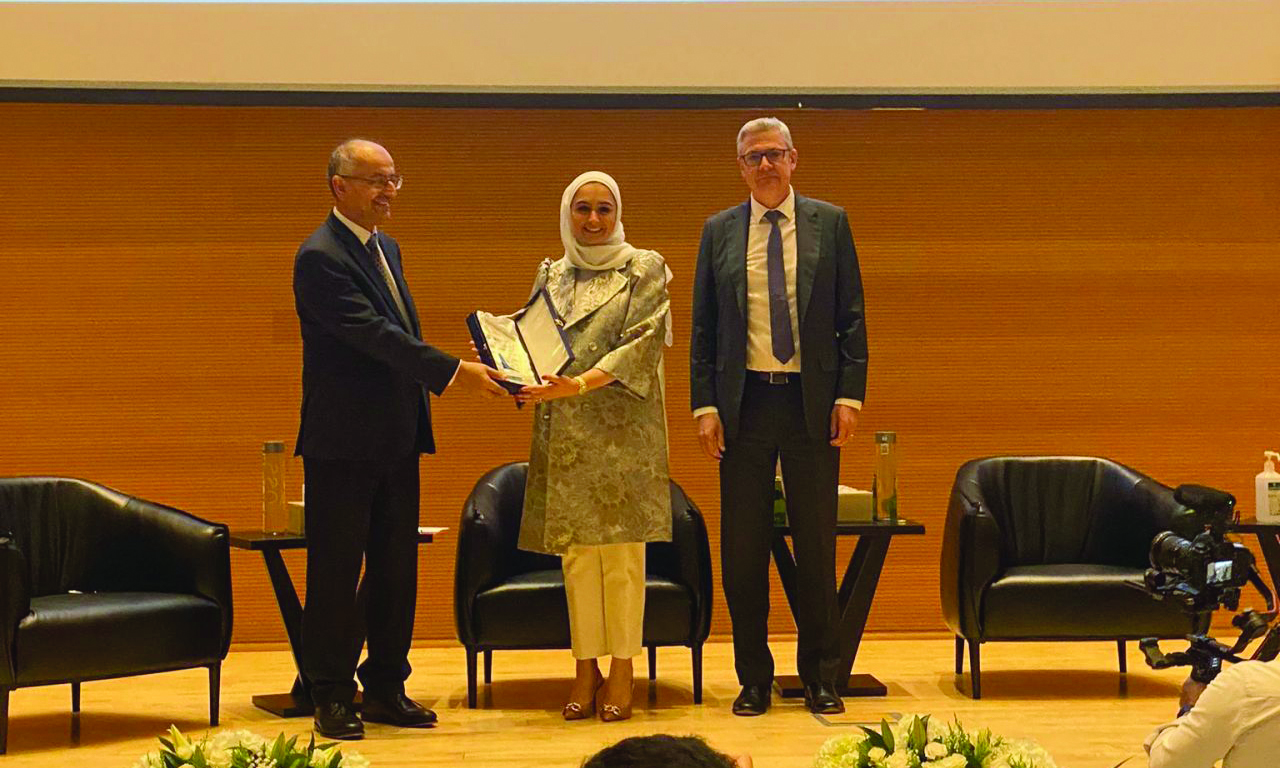By Ben Garcia
KUWAIT: The British Council in collaboration with the Kuwait College of Science and Technology (KCST) organized on Wednesday a conference entitled 'Women in Research and Higher Education'. The event was organized coinciding with the celebration of International Women's Day and was held at the KCST auditorium. It was attended by Sunny Ahmed, the Deputy Head of Mission at the British Embassy Kuwait and Michael Gordon, British Council Director. Among the speakers were women in academic circles and other respected guests.
In his opening remarks, Michael Gordon said that despite the advances, progress, and achievements in careers in many areas, "the fact is we are still a male dominated society." "There are still biases. There are many barriers," he said. "But in discussions like this, we can help understand the pattern and when we exchange experiences and inspirations today, there are opportunities to hear from these women who spectacularly made advances and achieved on their careers."
Dr Randa Diab Bahman, Student Life Alumni and the organizer of the event, said the function focused on women in research. "This event is not just about women's needs, rights or all other conventional themes about women; we want to talk about those issues normally. Those issues are overlooked, although they are of concern for many of us in the academy. We cannot totally ignore those issues just because nobody talks about it," she said.
"We are here to support, to network and to learn. We are not here to change anything; we are not here to bring you statistics on the table," Bahman explained. "We are simply here to make a difference. Our message in this seminar is to show how we did it despite many struggles in research in general; we are here to show you our tools that we used to overcome hurdles." Bahman mentioned as an example the difficulties women face to have mentorship, which is a very important part in gaining academic experience. "It's very difficult for women to be part of any collaborative research," she went on. "It's difficult to collect any data because nobody wants to participate or cooperate. We cannot easily knock on doors of institutions or homes for a surveys we need."
 A general view of the audience.
A general view of the audience.She however conceded on the best part COVID-19 brought to the women in research. "I came to this realization during the last two years of the pandemic: I was working in the academic field for many years, and I'd never achieved the high level of success I was able to achieve during pandemic. When I sat at home, I did a lot of phone calls. I was on my laptop researching and talking to people via social media. Within a span of two years, I published 14 papers, plus two books, that is only because of my research actions at home. For many people, the pandemic was no doubt a challenge, but for us women in research, it was a ton of opportunity to do things. It helped drastically especially those who have families and who have kids. It gave us the opportunity at doing our research at our own time. In fact I don't know how to go back to the pre-pandemic normal anymore, but I also want to stress that I believe that pre-pandemic will no longer be possible; it will not exist anymore, so we have to adapt. In fact, the pandemic time has taught us so many lessons in life, that we can get everything done, productively, efficiently and effectively without the normal procedures or protocols which we followed during pre-pandemic time," she mentioned.
Professor Khaled Al-Begain, KCST President, said the seminar brings out the best of everyone. "We, as an academic institution believed in scientific and the world of research. These are very important parts in our institution. We are proud of our research team; they are our source pride. We represent a strong culture of research in the college and as per statistics, we are number one in Kuwait in the number of publications per faculty. This is way above average. Also, because we are celebrating International Women's Day, we are also proud to mention that KCST female students' population stood at 60 percent. We also have great proportions of women in our faculties," said Begain.











